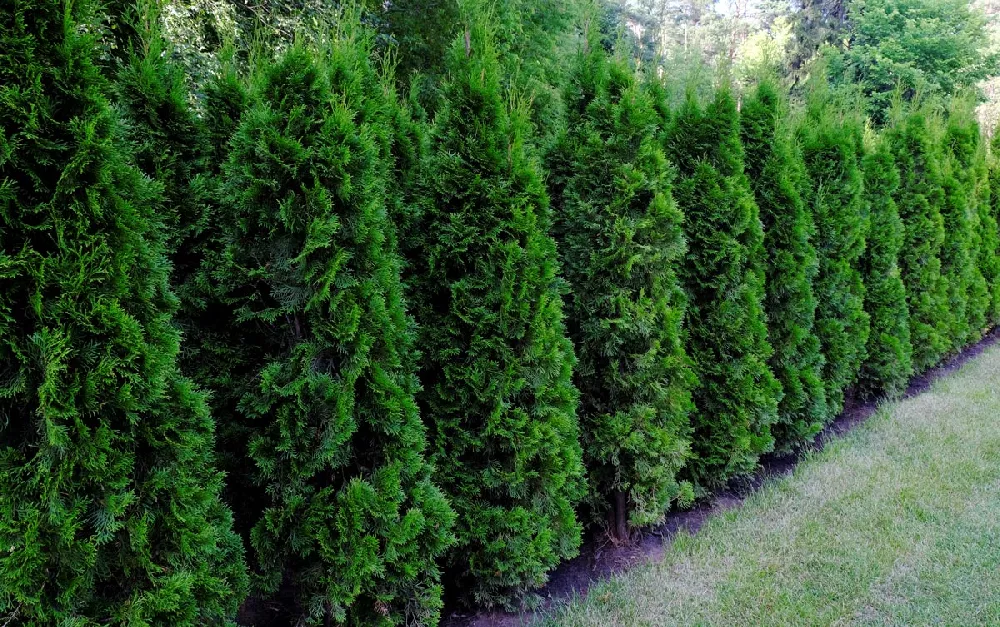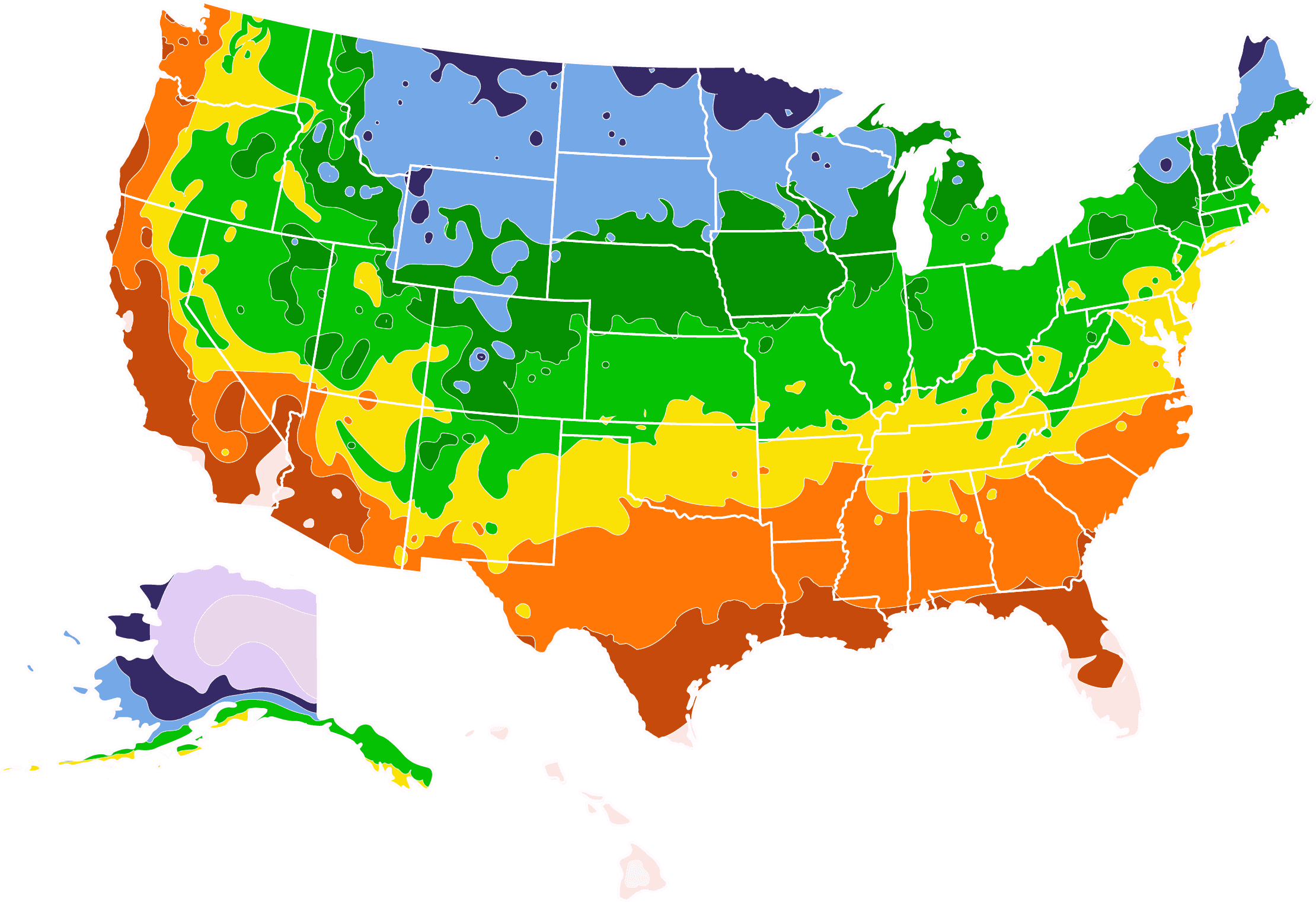- Home >
- Privacy Trees >
- Taylor Juniper Trees
Taylor Juniper Trees for Sale
- Ships in 1-2 days
- 1-Year Warranty Eligible
- Pots or accessories are not included unless specified in the product options.
Shipping Details:
Once your order is shipped, you’ll receive an email with a tracking number and estimated delivery date. Most orders ship immediately, but some items are seasonal and may only ship in spring or fall. These products are noted on the website.
If you're looking for a tree that offers the herbaceous equivalent of a long, tall glass of lemonade in your garden, the Taylor juniper tree, Juniperus virginiana 'Taylor', is for you. This full, attractive evergreen rises to a mature height of 15 to 20 feet, but its width is only 3 to 4 feet, giving it a columnar silhouette that is a perfect backdrop for other plantings or an excellent windbreak at the back of a garden. It can also be used to add elegance and form to a driveway, pathway, or front entrance. Like most junipers, the Taylor juniper tree is a tough, easy-to-grow tree that thrives in a range of soil types and needs no special care. Here are a few more reasons to add several to your garden:
- Once established, the Taylor juniper tree is drought-resistant and needs little supplemental watering.
- The trees are long-lived and resistant to disease and animal pests — including deer.
- They are resistant to phomopsis juniper blight (cedar apple rust).
Plant Care
Sunlight

The Taylor juniper tree thrives in full sun — six to eight hours of direct light a day.
Watering
Water once a week when young; mature trees only need supplemental watering in drought conditions or heat waves.
Fertilizing

Fertilize established trees with a balanced, slow-release fertilizer in early spring and late summer.
Planting and Care
Planting instructions
Site your Taylor juniper tree where it will receive full sun, in soil that drains well. If you’re planting multiple trees to form a hedge or windbreak, place them 5 to 6 feet apart. Unpot the sapling and tease out any encircling roots, which can girdle the tree and kill it. Dig a hole that’s as deep as the root ball and two to three times as wide. Place the tree in the hole and, while holding it upright, fill in around it with good-quality topsoil, tamping down as you go to eliminate air pockets. Water thoroughly. Add a 2- to 3-inch layer of an organic mulch, such as bark chips, around the root zone to conserve moisture, but keep it from touching the tree’s bark.
Watering and nutrients
For the first season after planting, water your Taylor juniper tree every few days unless you receive rain. Once the tree is established and you see robust signs of growth, you can taper back on supplemental watering. When established, Taylor juniper trees are drought-resistant and shouldn’t need additional water. Fertilize your juniper in spring and early summer with a light application of a product that is designed for conifers.
Pollination
Most junipers are monoecious, which means that a single plant has both male and female reproductive structures. Junipers don’t have actual flowers, but instead reproduce through male and female cones. The male cones release pollen, which fertilizes the female cones. After one or two years, the cones give way to juniper berries, which are modified cones that contain the seeds.
Pruning
The Taylor juniper tree maintains its tall, pyramidal form naturally, without a lot of trimming. Prune out any dead, diseased, or damaged branches whenever you see them — and that may be all you need to do. It can be pruned lightly to encourage a more hedge-like shape if you have multiple trees planted together. You can also prune to control the height if, for example, you wanted to grow the tree in a container and keep it to a fairly small size.
Pests and diseases
Although fairly easy to care for, the Taylor juniper tree may experience pests such as bagworms and spider mites. Bagworms are the bigger worry, since a severe infestation can kill a tree. You may see the characteristic bags that hold the insect’s eggs — if so, remove them immediately. You may also use an insecticide that contains Bacillus thuringiensis to control them. The Taylor juniper tree may also experience cedar apple rust, which may show itself as a brown gall on the branches. Trim out any galls and dispose of them. It’s most likely to show up if you are also growing apple trees or other cedars. The Taylor juniper tree has some resistance to cedar apple rust, but keep an eye on your trees nonetheless, since infection is possible.
Achieving maximum results
The Taylor juniper tree is a cultivated variety of the eastern red cedar tree. The reason for that tree’s name is because its foliage turns a reddish-brown color in winter — so don’t be dismayed if your tree slowly changes from its normal silver-green with the change in seasons. You may see bright blue berries on your tree in the winter, providing visual interest in your garden. Although these berries may be edible, depending on the variety of juniper, they are not often eaten because of their bitter taste. They are actually not a true berry, but are a modified cone, and have been used as a spice in some Asian and European cuisines. Juniper berries are, in addition, beloved by songbirds, and the closely-gathered foliage of the Taylor juniper tree makes an excellent nesting site. If you are interested in a tree that will support local wildlife, the Taylor juniper tree is an excellent choice.
FAQs
Do Taylor juniper trees grow fast?
If they are well-cared-for and healthy, a Taylor juniper tree will gain roughly 2 feet in height a year until it reaches its maximum height of 15 to 20 feet. In that time, it will gain very little width, and it shouldn't get much wider than 3 to 4 feet in diameter.
How long does the Taylor juniper tree live?
A healthy Taylor juniper tree may live as long as 70 years, if it is sited in a spot that suits it, with good soil and full sun. It is not particular about the type of soil it grows in, and should perform well in both clay and sandy soil.
Can I plant a Taylor juniper tree near a roadway?
Juniper trees are very tolerant of pollution and road salt, and they are thus ideal plants to line a driveway or to use in an urban garden where they might be exposed to smog or other pollutants. The Taylor juniper tree does not have an extensive root system, but it should be placed at least 5 to 6 feet away from asphalt or paving so that its roots don't impede. Junipers in general have a deep taproot, along with a smaller array of sideways-growing fibrous roots nearer to the surface that collect rainwater.
Compare Similar Products
Customer Reviews
 Healthy Sturdy Tree
Healthy Sturdy TreeOur trees arrived and were very healthy. Once we planted them, they continue to thrive! I'm looking forward to seeing them grow!
You can't add more Product Name - Product size to the cart.
OK






